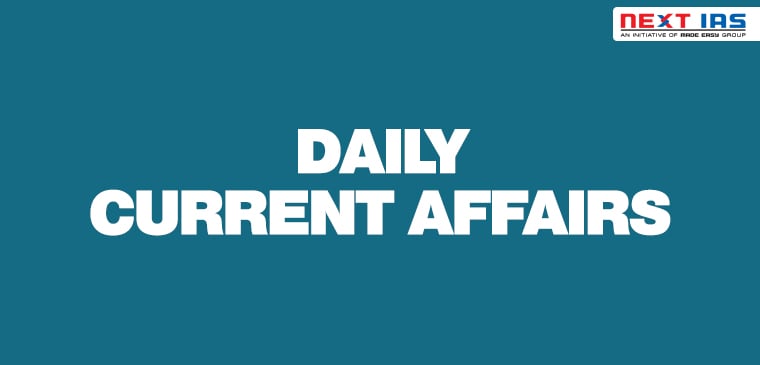
In News
Recently, India and the European Union (EU) have held a virtual meeting to acknowledge the strong momentum of the India-EU relations.
Major Highlights
- EU Common Agriculture Policy
- It is a partnership between agriculture and society and between Europe and its farmers and was launched in 1962.
- It is a common policy for all EU countries and is managed and funded at European level from the resources of the EU’s budget.
- Aims To
- Support farmers and improve agricultural productivity, ensuring a stable supply of affordable food.
- Safeguard European Union farmers to make a reasonable living.
- Help tackle climate change and the sustainable management of natural resources.
- Maintain rural areas and landscapes across the EU.
- Keep the rural economy alive by promoting jobs in farming, agri-food industries and associated.
(Image Courtesy: Twitter)
- EU Farm to Fork Strategy
- It is at the heart of the European Green Deal aiming to make food systems fair, healthy and environmentally-friendly.
- It aims to accelerate EU’s transition to a sustainable food system that should:
- Have a neutral or positive environmental impact.
- Help to mitigate climate change and adapt to its impacts.
- Reverse the loss of biodiversity.
- Ensure food security, nutrition and public health, making sure that everyone has access to sufficient, safe, nutritious, sustainable food.
- Preserve affordability of food while generating fairer economic returns, fostering competitiveness of the EU supply sector and promoting fair trade.
- It sets out both regulatory and non-regulatory initiatives, with the common agricultural and fisheries policies as key tools to support a just transition.
- Targets
(Image Courtesy: CLEW)
- UN Food System Summit and Bilateral Cooperation
- The UN Secretary General has called for the first ever UN Food Systems Summit to be held in September 2021.
- It will strategize the actions for positive change in Agri-food systems in the world to realize the vision of the 2030 Agenda for Sustainable Development.
- G20 Agriculture Minister Process
- It is one of the ministerial meetings organized as part of the G20 Leaders Summit 2021, which will be hosted by Italy in October 2021.
- The process will have three major focus areas: People, Planet and Prosperity.
Highlights by India
- The Union Minister of Agriculture and Farmers Welfare explained the scenario of agriculture in India and the dominance of small farmers and the commitment of the Government of India towards welfare of farmers in India.
- Issue of Maximum Residual Limit of Tricyclazole
- The minister raised the issue of fixing the Maximum Residual Limit (MRL) of Tricyclazole used in rice crops.
- The MRL is the maximum concentration of a pesticide on a crop or food commodity.
- Tricyclazole is a fungicide used for controlling rice blast (a disease in rice crops severely affecting yields). It is not approved for use in the EU.
- It has been a concern for India and is affecting India’s Basmati Rice exports to the EU.
- All the required studies and documents have been submitted and the MRL will be fixed by the second quarter of 2022 before next season. Until then, the issue may be resolved through other mitigation measures.
- The minister raised the issue of fixing the Maximum Residual Limit (MRL) of Tricyclazole used in rice crops.
- Related Government Initiatives
- The Agriculture Infrastructure Fund was launched to increase the incomes of the farmers. It has a corpus of Rs. 1 lakh crore for development of farm gate and agriculture marketing infrastructure in rural areas.
- Scheme of Formation of 10000 FPOs was launched to help small and marginal farmers in marketing of agricultural produce.
- The Pramparagat Krishi Vikas Yojana encourages organic farming. Farmers are encouraged for organic farming on either sides of Ganga river up to 5 km through formation of clusters.
- Application of nano-urea to make agriculture sustainable and environment friendly.
|
European Union
India-EU Relations
|
Source: PIB
Previous article
Cairn Energy Dispute
Next article
Facts in News